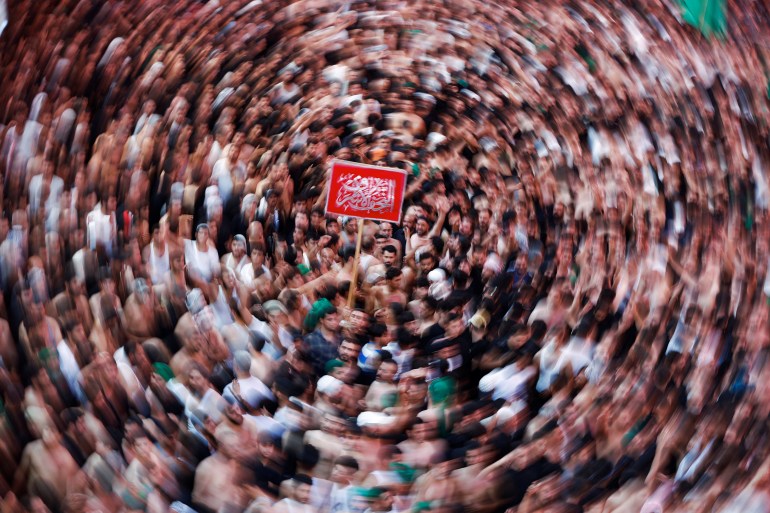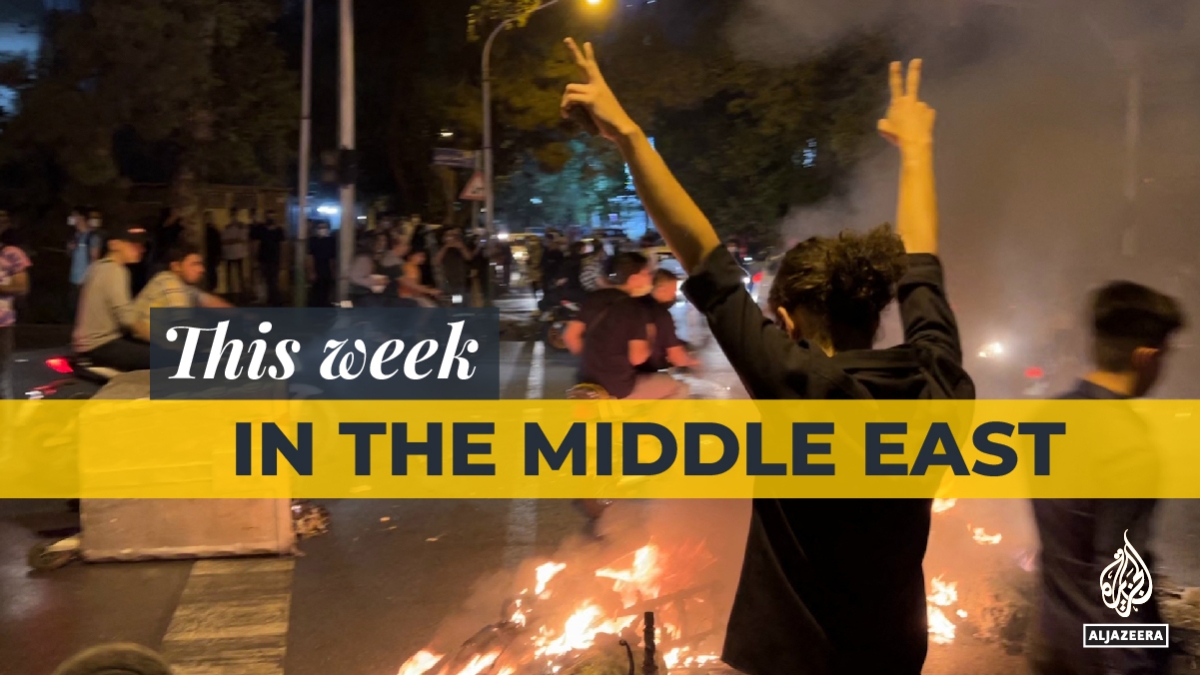Here’s a round-up of Al Jazeera’s Middle East coverage this week.
This week, protests in Iran, an investigation into the death of Shireen Abu Akleh and Lebanese bank heists. Here’s your round-up, written by Abubakr Al-Shamahi, Al Jazeera Digital’s Middle East and North Africa editor.
Mahsa Amini was on a family trip to Tehran when the morality police arrested her for what they called her immodest clothing. Witnesses said the authorities beat her in their van. The 22-year-old was taken to a re-education centre, and later died in a hospital on September 16.
The Iranian authorities said she had a heart attack, and blamed pre-existing health conditions, which her family denied she ever had. Amini was in a coma when she died.
Amini’s death has struck a raw nerve in Iran. The morality police – and Iran’s restrictive clothing laws – are rejected by a lot of Iranians. Her death while in custody has led to protests across Iran, the hacking of government websites and viral videos of women cutting off their hair or burning their headscarves. And now, some people attending protests have been killed.
An independent investigation this week tore another piece out of the Israeli narrative surrounding the killing of Al Jazeera correspondent Shireen Abu Akleh. Investigators say they found evidence that an Israeli military sniper fired a total of 16 shots, in three bursts, over the course of two minutes — which they say makes the Israeli suggestion that the killing of the Palestinian American was “accidental” seem unlikely.
Banks have been getting robbed, usually at gunpoint, all across Lebanon – but the perpetrators are being treated as heroes. That’s because the people doing the robbing are demanding their own money. Doesn’t make sense, right? Well, it has to do with Lebanon’s economic crisis, and restrictions on bank withdrawals. Have a read of this explainer for more details, and this interview with Sali Hafiz. She started the latest round of bank heists, and explains why she did it: to save her sick sister
It’s not all bad news
Stories that come out of the Gaza Strip are all too often about war and destruction. This time, though, a rare bit of good news was reported when a farmer working in his olive grove dug up a spectacular, vibrantly coloured and almost intact Byzantine mosaic floor, estimated to be about 1,500 years old.

Iran’s rial going digital
Cryptocurrencies have repeatedly gone boom and bust, but Iran still plans to launch what it’s calling a ‘digital rial’. Technically, it’s not a cryptocurrency – it’s highly centralised, an affront to crypto-traditionalists for sure – but Iran says the idea is that it would allow the country to move its fintech sector forward. But some people aren’t so sure, and are worried about privacy and whether there’ll be any economic benefits.
In brief
One man was killed during confrontations between Palestinian security forces and residents in Nablus – Tunisia’s former PM was detained in what critics are calling a crackdown on the opposition, before later being released – Israel appointed its first ambassador to Turkey since 2018, but Chile’s president snubbed Israel’s envoy there after a Palestinian teenager was killed in the occupied West Bank – Five people were killed in a reported Israeli air attack on Damascus airport – Egypt freed Al Jazeera journalist Ahmed al-Najdi, who had been detained since August 2020.

Russia’s losses are Turkey’s gains
Turkey has played a balancing act with Russia and Ukraine, supporting Kyiv’s sovereignty (and backing it with military drones), while refusing to impose sanctions on Moscow. But Turkey knows that Russia’s preoccupation with Ukraine is opening up opportunities for Ankara in other areas. “Anyone who thinks that the war in Ukraine is, at the end of the day, a conflict involving Moscow, Kyiv and Western capitals would do well to look further afield,” writes Carnegie Europe’s Dimitar Bechev in this opinion piece. “If Russia’s expansion is stopped, another nation is ready to spread its diplomatic influence.”
Quote of the Week
“I feel lost – like all Iraqi people. We don’t know what our future will be, not even the coming days. Everything is on edge,” – Muser, a young activist stuck in the middle of Iraq’s warring militias and politicians, says in this dispatch from Baghdad.
